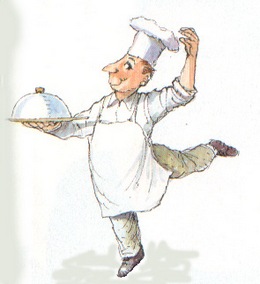Free lunch and Ration Book to end in Cuba
- Submitted by: admin
- national
- Politics and Government
- 07 / 14 / 2010

HAVANA. July 14, 2010. CUBA is preparing to abolish ration books and free lunches for workers in a shift away from daily policies that have shaped the country for more than half a century.
President Raul Castro, 79, is ushering in market changes designed to help Cuba through an economic crisis.
The ration book has long been a feature of daily life, introduced shortly after Fidel Castro and his rebel army swept to power. But now Cubans are to lose their monthly stipend of food and living supplies as the government cuts costs.
People are already dealing with lower monthly allowances of salt, while peas and potatoes have disappeared from subsidised shops.
In the early days of communist rule, the rationing system offered decent quantities of a wide range of items, from tinned beef to Russian-made clothes.
But provisions have diminished to a point where the monthly allowance of food and other essentials barely lasts a week. Also, the people complain the food is of poor quality.
The move is seen as yet another signal that the President is abandoning cornerstones of communist life. Earlier this month, the state shut down thousands of workers' cafeterias, forcing employees to provide their own lunch.
And hundreds of state-run barber shops and beauty salons have been handed over to employees as the start of a long-expected privatisation drive. Previous measures have included giving unproductive land to private farmers and allowing contractors, such as taxi drivers, to run their own business.
Zoraida Fernandez, who has a family of six in Havana, is resigned to the fact that rationing will not be around much longer. ''At first it will be difficult for people who live off the ration book, old people who live alone. But, in the long run, they have to get rid of the ration book because it's no use any more,'' she said.
President Raul Castro, 79, is ushering in market changes designed to help Cuba through an economic crisis.
The ration book has long been a feature of daily life, introduced shortly after Fidel Castro and his rebel army swept to power. But now Cubans are to lose their monthly stipend of food and living supplies as the government cuts costs.
People are already dealing with lower monthly allowances of salt, while peas and potatoes have disappeared from subsidised shops.
In the early days of communist rule, the rationing system offered decent quantities of a wide range of items, from tinned beef to Russian-made clothes.
But provisions have diminished to a point where the monthly allowance of food and other essentials barely lasts a week. Also, the people complain the food is of poor quality.
The move is seen as yet another signal that the President is abandoning cornerstones of communist life. Earlier this month, the state shut down thousands of workers' cafeterias, forcing employees to provide their own lunch.
And hundreds of state-run barber shops and beauty salons have been handed over to employees as the start of a long-expected privatisation drive. Previous measures have included giving unproductive land to private farmers and allowing contractors, such as taxi drivers, to run their own business.
Zoraida Fernandez, who has a family of six in Havana, is resigned to the fact that rationing will not be around much longer. ''At first it will be difficult for people who live off the ration book, old people who live alone. But, in the long run, they have to get rid of the ration book because it's no use any more,'' she said.
Source: www.theage.com.au/
Comments